Business Law: Monopoly, Anti-Competitive Practices, and Fair Trading
VerifiedAdded on 2023/03/31
|7
|419
|205
Report
AI Summary
This report provides an overview of monopoly and anti-competitive practices legislation, focusing on their impact on businesses and markets. It discusses the characteristics of a monopoly market, the role of competition commissions in promoting fair trading, and the implications of dominant positions within the EU common market. Furthermore, it examines instances where EU law provides exemptions for anti-competitive practices, highlighting the balance between fostering competition and allowing for certain collaborations or efficiencies. The report references scholarly articles on international business law and contract law to support its analysis of these complex legal and economic issues. Desklib is a platform where students can find a wide array of resources, including past papers and solved assignments, to aid in their studies.
1 out of 7

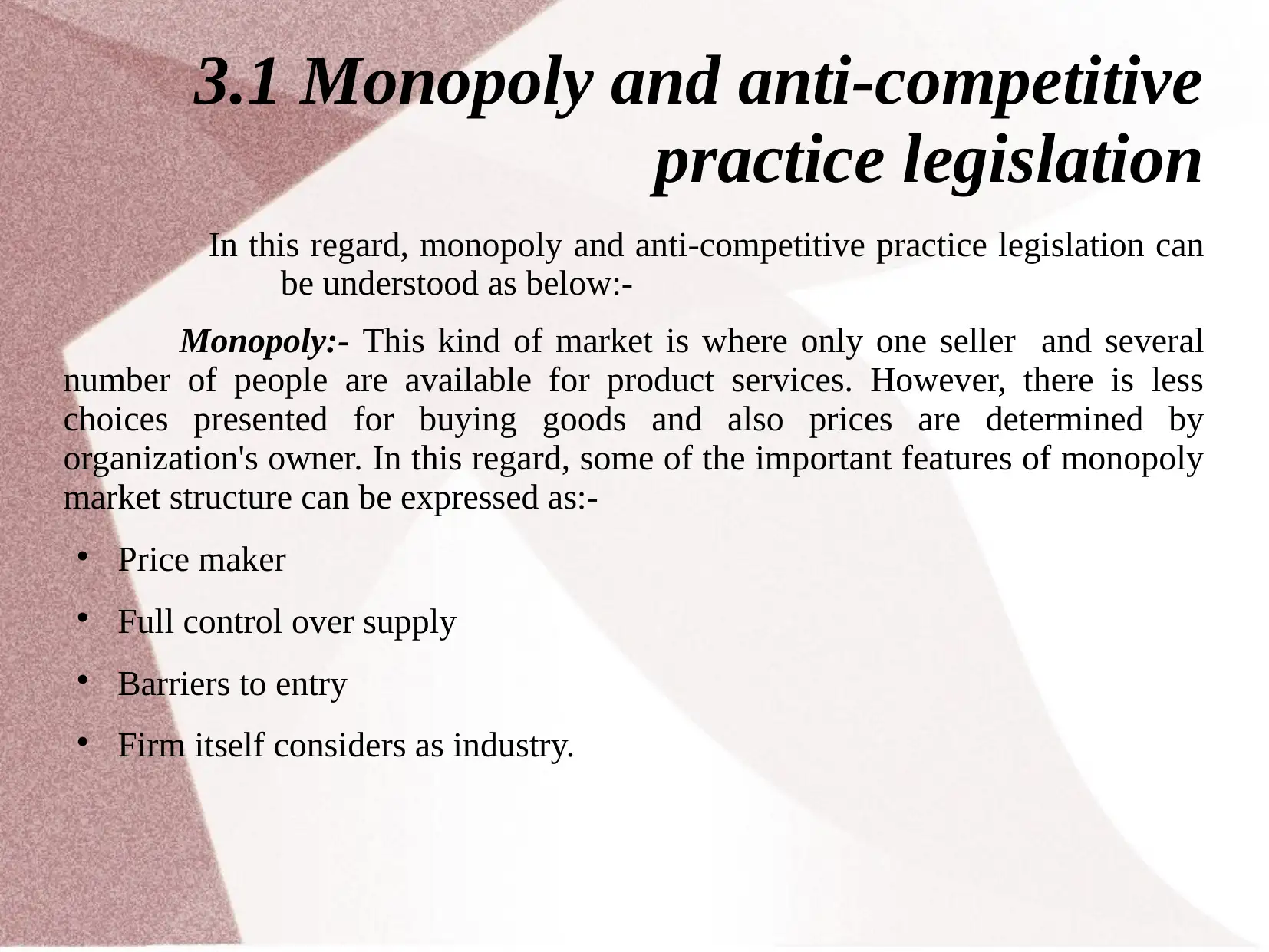
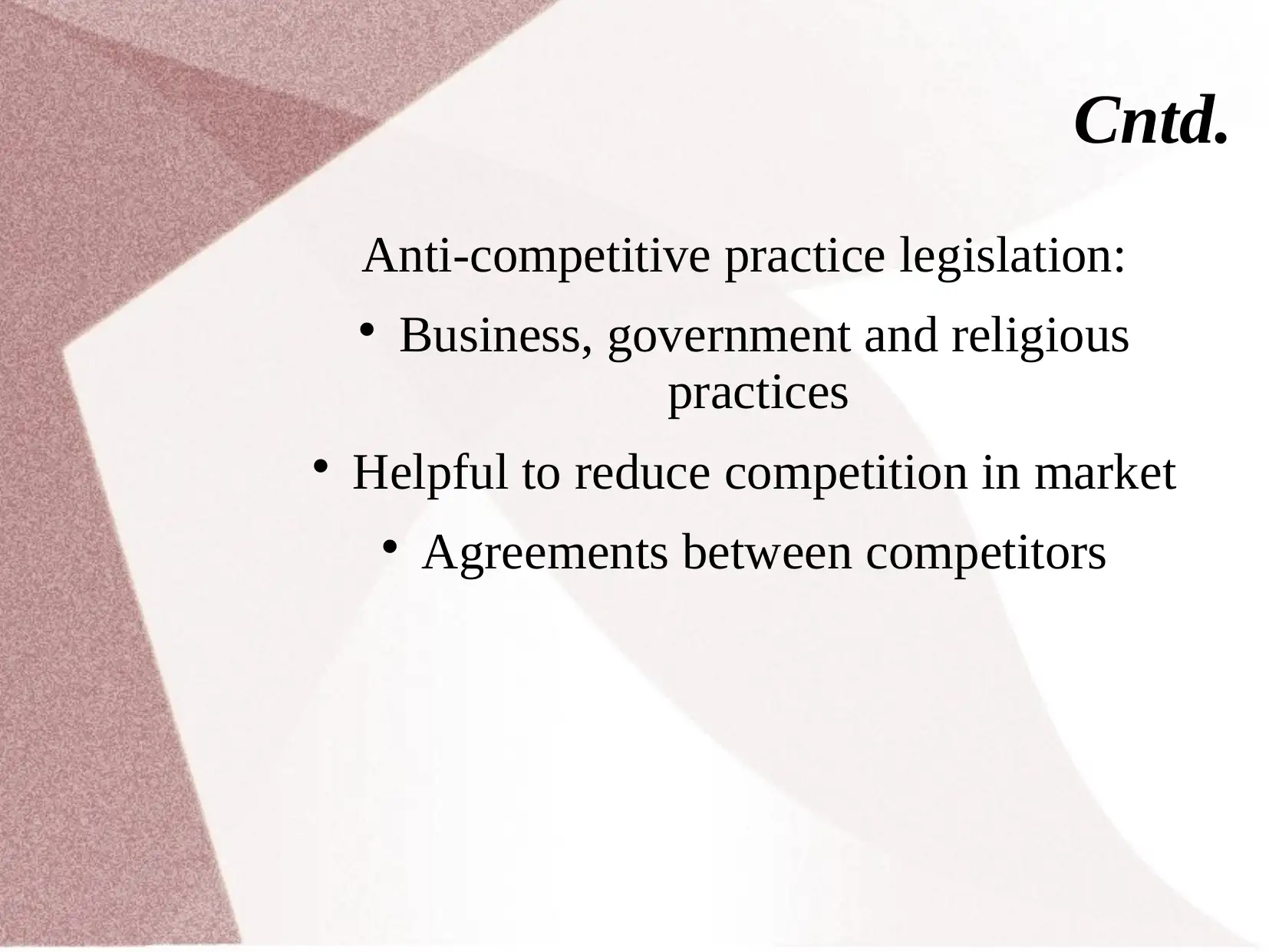

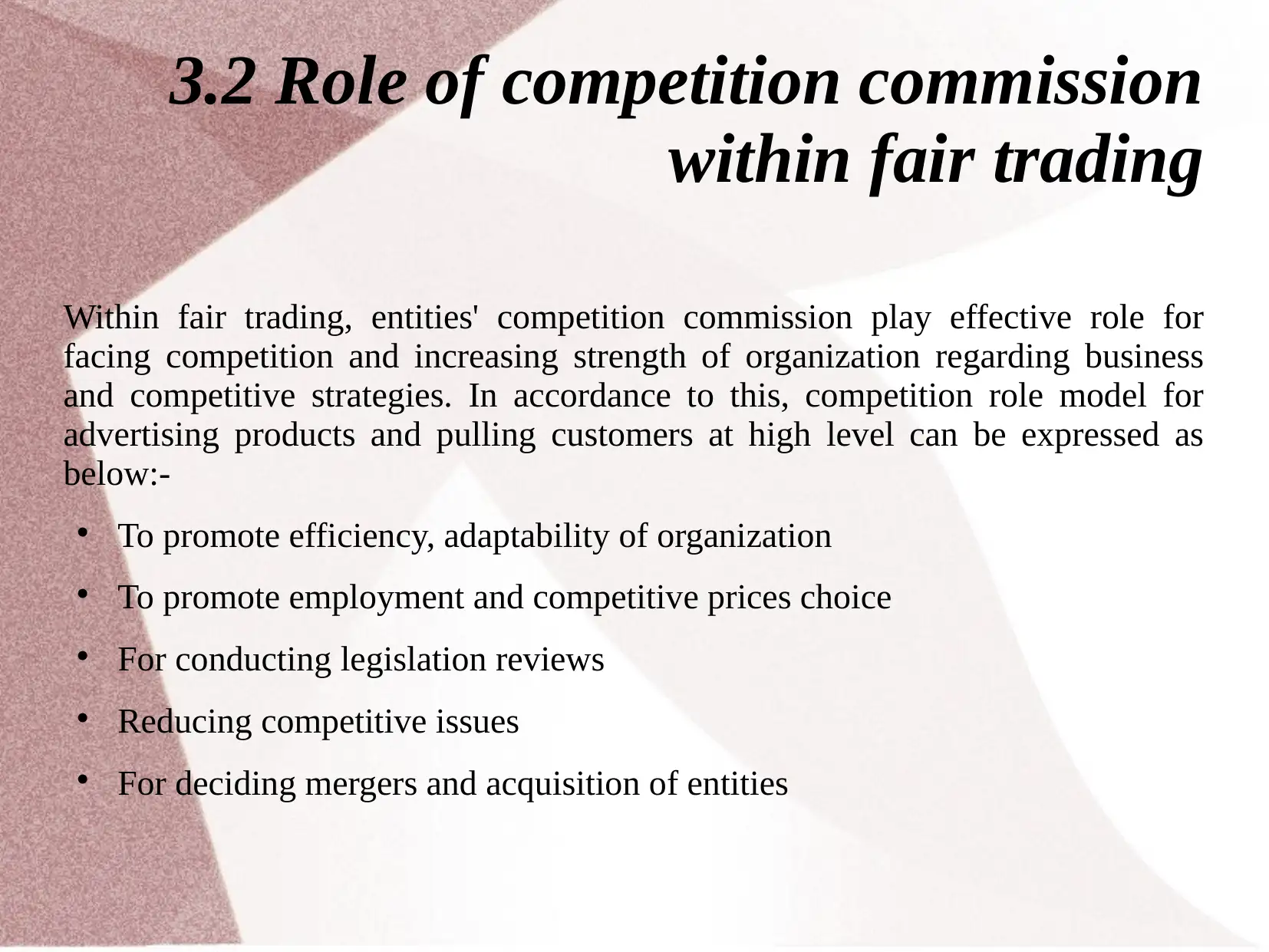
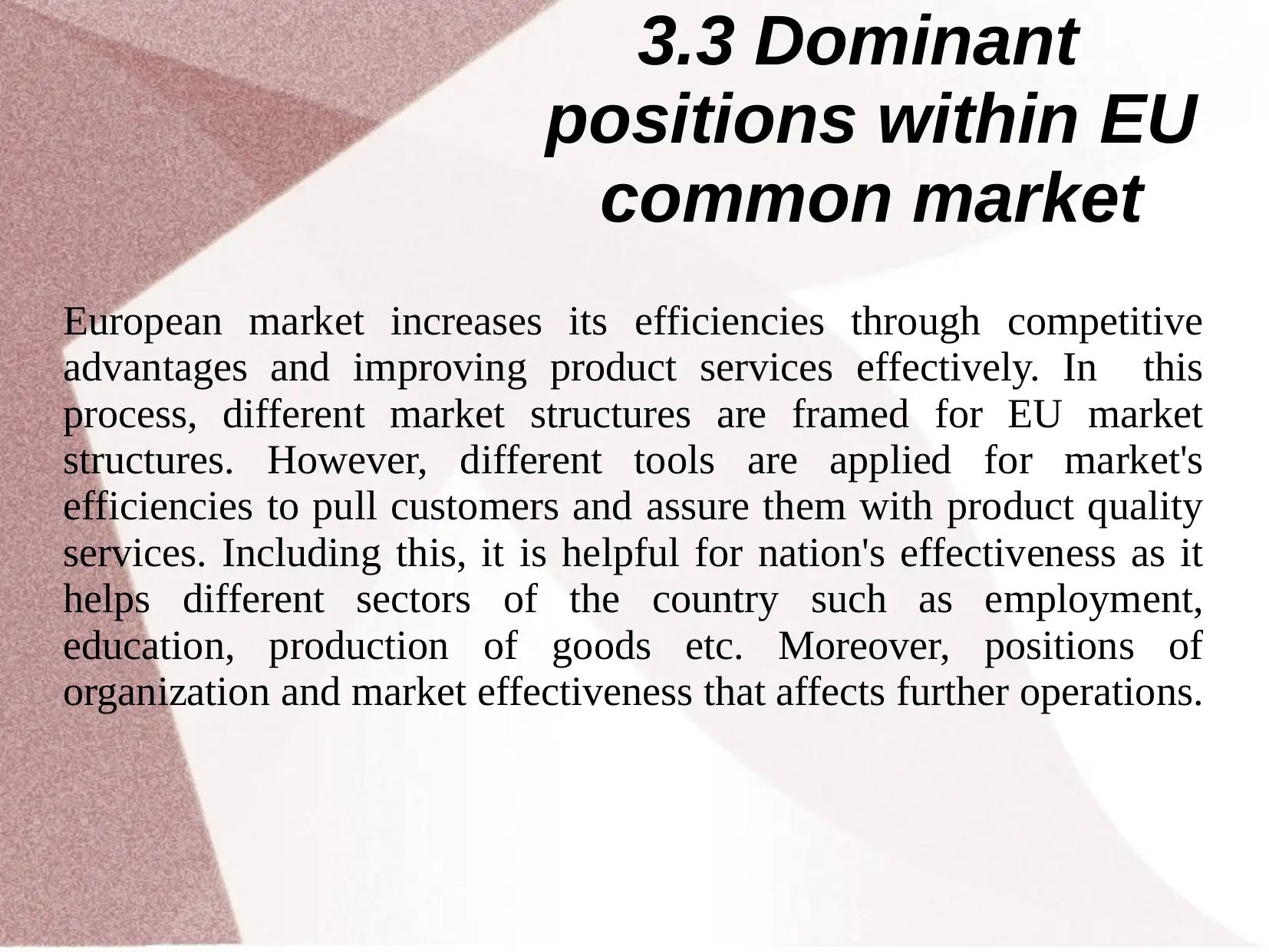
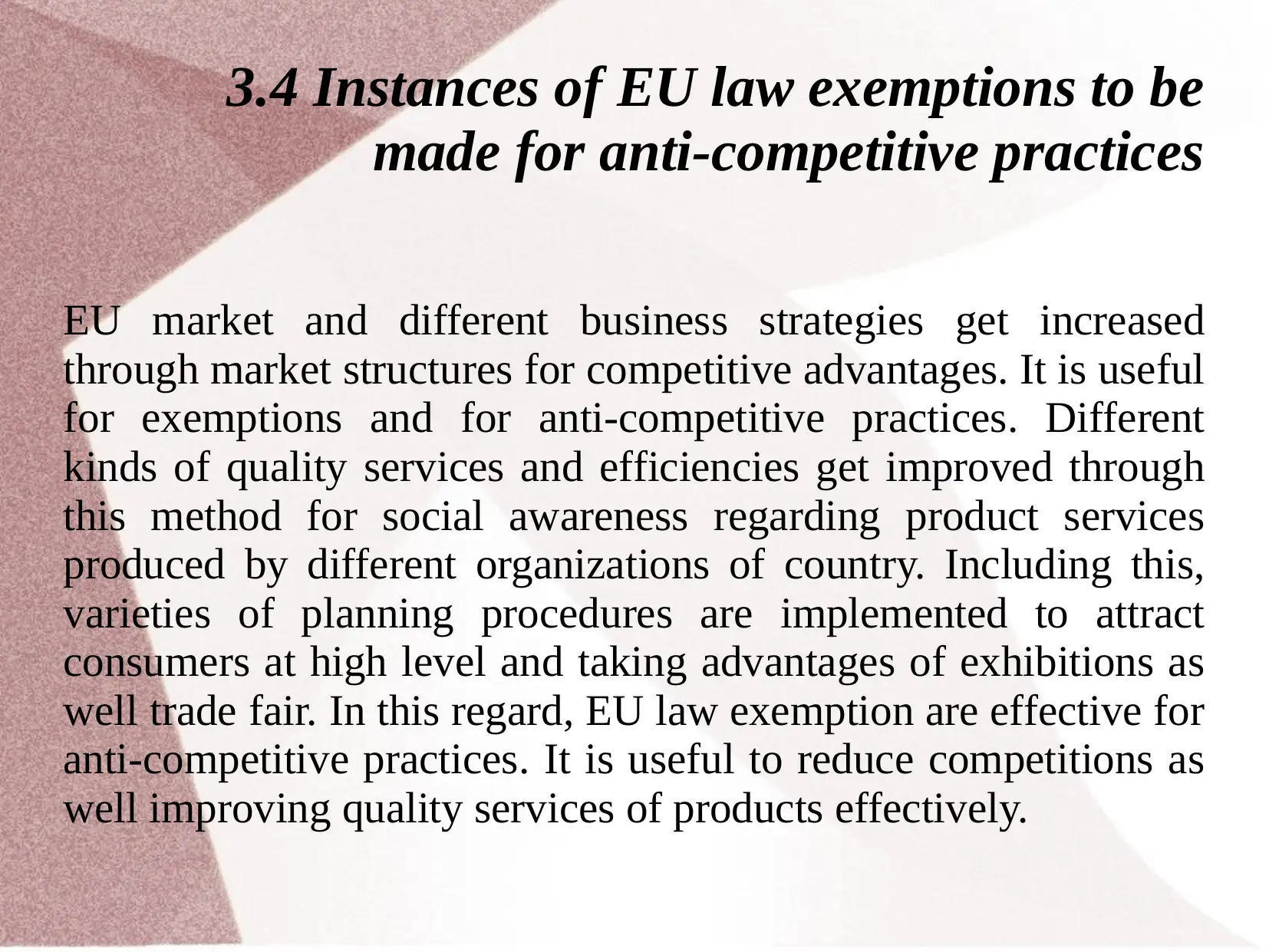
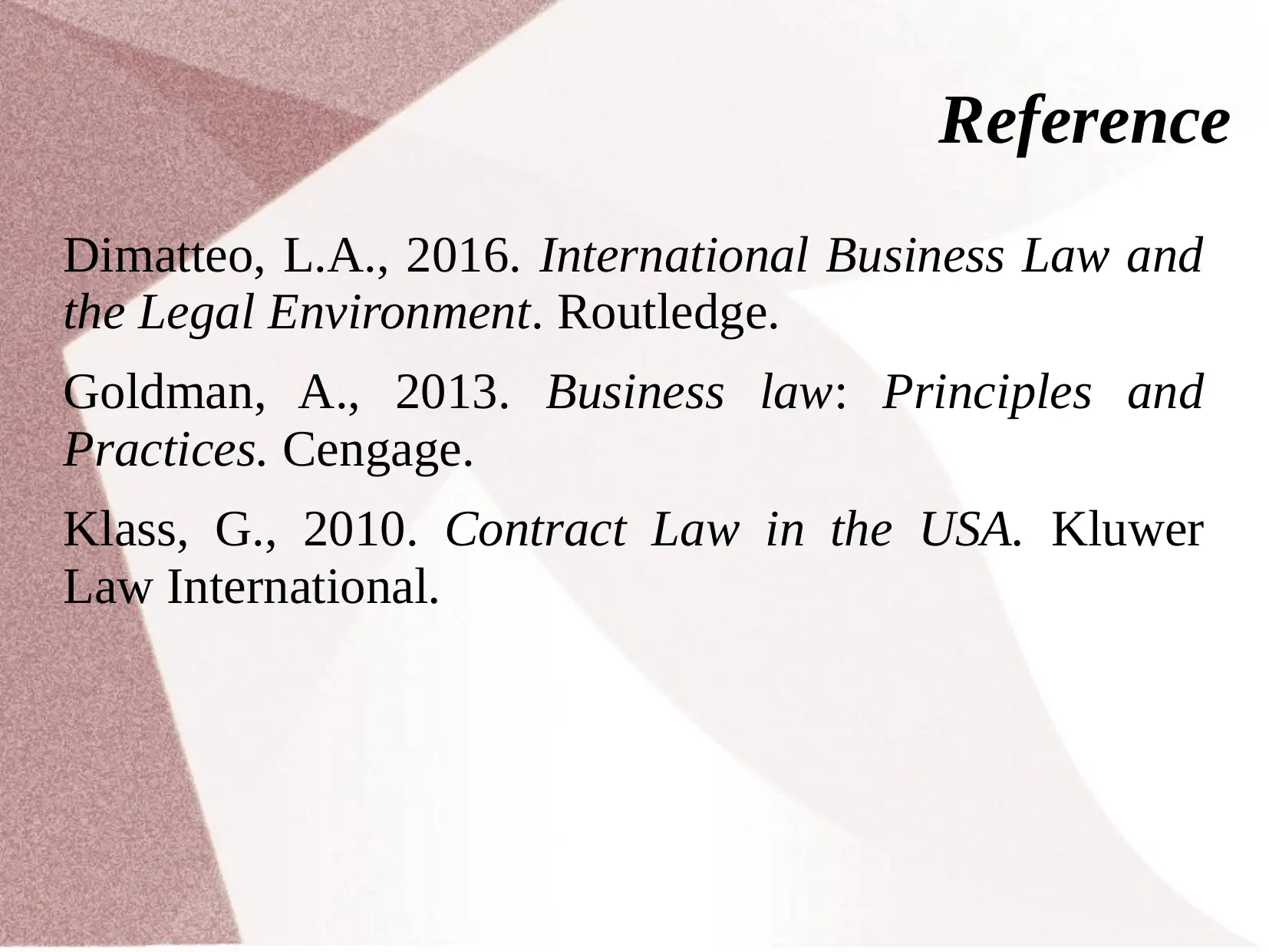






![[object Object]](/_next/static/media/star-bottom.7253800d.svg)